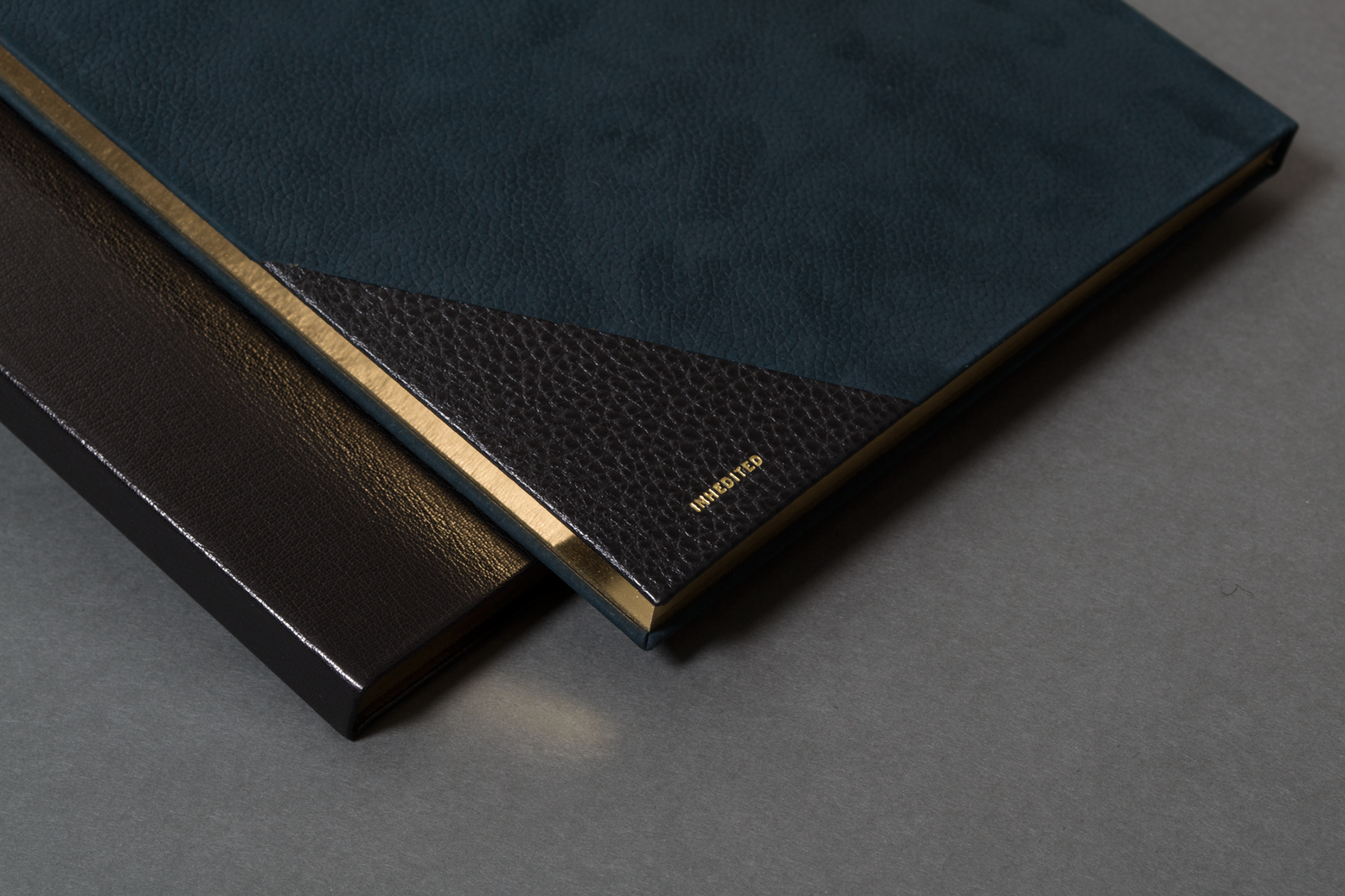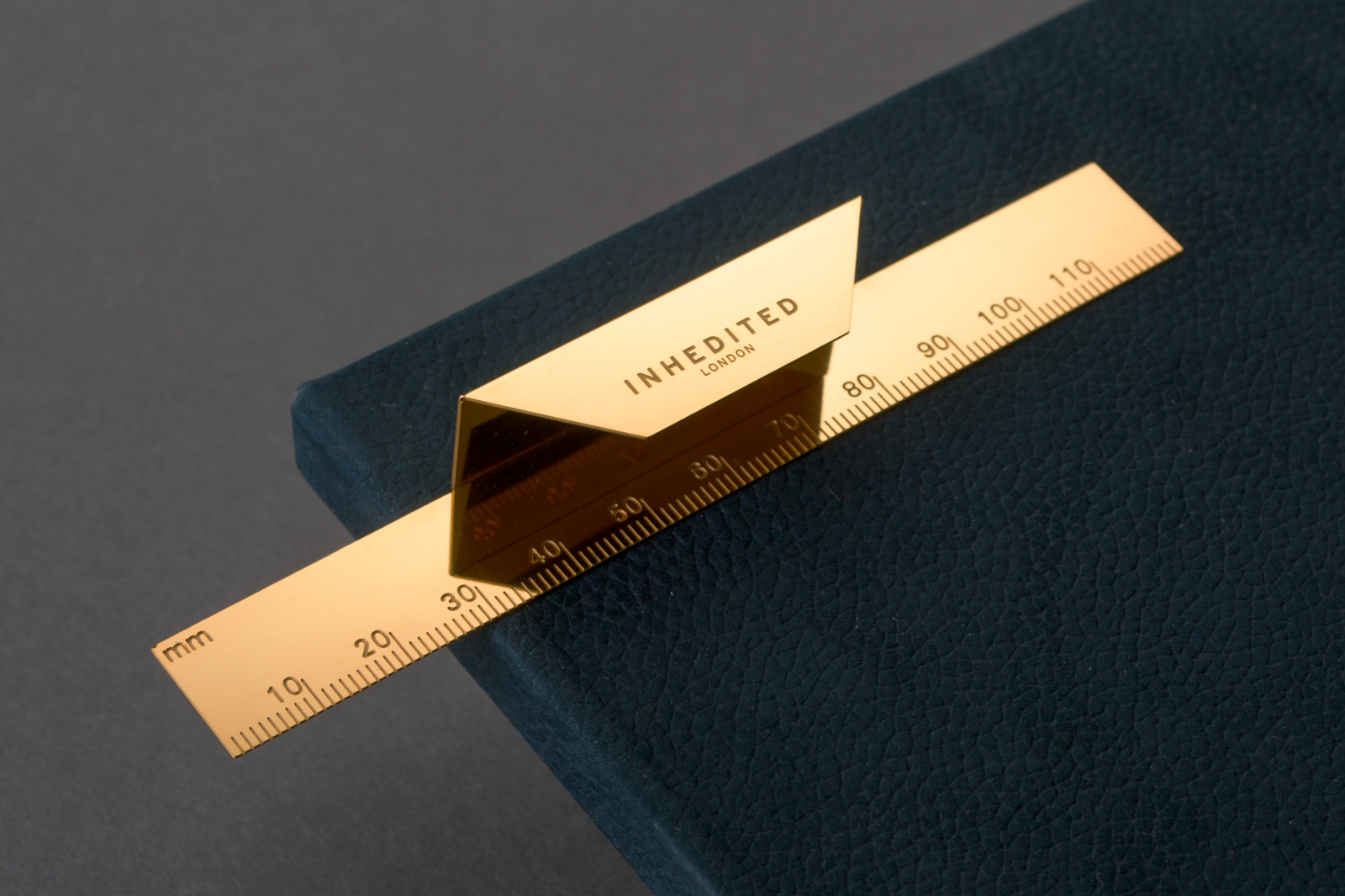HAND+WRITING
“First comes the moment when desire is invested in a graphic impulse.” This seems to have been the stage of copying “certain passages, moments, even words which have the power to move me,” and of working out “the rhythm of a sentence.”
- Roland Barthes on His "Almost Obsessive Relation to Writing Instruments"
GILDER'S LAMENT ON EDGE GILDING
My size is prepared,
The leaf is laid out,
My agate is polished and smooth. The press, it is loaded,
The edge has been scraped,
I feel like I'm in the groove.
I put on the size,
I lay on the gold,
My confidence reaching its peak. I polish the edge,
Till I see by its shine,
The edge of perfection I seek.
I take the book out,
Fan open the leaves,
My heart stops still in mid-beat. Where has the gold gone,
I look all around.
As the leaf flakes onto my feet. Oh, where did I err,
I did everything right,
But the gold, it just didn’t stick.
I love the gilt edge,
But the process is such,
That it leaves me feeling quite sick.
- Unknown Gilder ca 17thC
THE GREAT DIARY PROJECT
Diaries are among our most precious items of heritage. People in all walks of life have confided and often still confide their thoughts and experiences to the written page, and the result is a unique record of what happens to an individual over months, or even years, as seen through their eyes. No other kind of document offers such a wealth of information about daily life and the ups and downs of human existence. The Project’s idea is to collect as many diaries as possible from now on for long-term preservation. In the future these diaries will be a precious indication of what life, in our own time, was really like. Diaries are also supposed to be private, and people often feel it is their duty to destroy them and keep them from prying eyes. The work of the Great Diary Project is to rescue diaries like these from skips and bonfires and look after them for the future as important items of everyone’s history. Anyone who has old or unwanted diaries can be sure that Bishopsgate Institute will take them gratefully and look after them. The Great Diary Project has been set up to provide a permanent home for unwanted diaries of any date or kind. As we are primarily concerned with ensuring the survival of as many documents as possible, we adopt a very liberal interpretation of the word ‘diary’. The collection now contains over 2000 diaries, and is adding to this resource as extensively as possible. Once part of the collection, all diaries are housed according to up-to-date conservation standards.
THE SLOW WRITING MANIFESTO
...Slow writing is the opposite of less slow writing. As the world is full of less slow writing, produced at a frenzied pace by writers who write less slowly, we take it as a challenge to write slow and to write slowly. Slow writing is writing that is savored for every letter written, every word produced. Slow writing requires sustained moments of stillness, of nothingness, of blank stares out the window. To do anything more would be to taint the trickling stream of text that defines slow writing...The present is littered with the brittle letters of those who have finished their writing, those who have had their say, those who have written less slowly. The future meanwhile belongs to those of us who have not finished what we have started. Our time has not yet come, because our words have not yet come.
- Mark Sample
HENRY MILLER ON WRITING
ONE Work on one thing at a time until finished. TWO Start no more new books, add no more new material to ‘Black Spring.’ THREE Don’t be nervous. Work calmly, joyously, recklessly on whatever is in hand. FOUR Work according to Program and not according to mood. Stop at the appointed time! FIVE When you can’t create you can work. SIX Cement a little every day, rather than add new fertilizers. SEVEN Keep human! See people, go places, drink if you feel like it. EIGHT Don’t be a draught-horse! Work with pleasure only. NINE Discard the Program when you feel like it—but go back to it next day. Concentrate. Narrow down. Exclude. TEN Forget the books you want to write. Think only of the book you are writing. ELEVEN Write first and always. Painting, music, friends, cinema, all these come afterwards.
LIST OF DIARISTS
This literature-related list is incomplete; you can help by expanding it.
ABOUT THE WHITE PAGE
The white page is an unknown universe. The writer jumping in to this space, discovers its dimension, its freedom, and following the urge he makes it his. If the words are action and speech, the white space is the silence and the respect we give to the other.
- Max Pulver
THE PHENOMENOLOGY OF SPACE IN WRITING ONLINE
‘Is writing by means of online technologies affected in a manner that differs significantly from the older technologies of pen on paper, typewriter, or even the word processor in an off-line environment?’ In writing online, the author is engaged in a spatial complexity of physical, temporal, imaginal, and virtual experience: the writing space, the space of the text, cyber space, etc. At times, these may provide a conduit to a writerly understanding of human phenomena.
- Max van Manen & Catherine Adams (LINK)
WRITING CREATES A SPACE THAT BELONGS TO THE UNSAYABLE.
Each time I write a word, a word that I love and love to write; in the time of this word, at the instant of a single syllable, the song of this New International awakens in me. I never resist it, I am in the street at its call, even if, apparently, I have been working silently since dawn at my table.
- Jacques Derrida
THE ART OF SLOW WRITING
In a series of conversational observations and meditations on the writing process, The Art of Slow Writing examines the benefits of writing slowly. DeSalvo advises her readers to explore their creative process on deeper levels by getting to know themselves and their stories more fully over a longer period of time. She writes in the same supportive manner that encourages her students, using the slow writing process to help them explore the complexities of craft. The Art of Slow Writing is the antidote to self-help books that preach the idea of fast-writing, finishing a novel a year, and quick revisions. DeSalvo makes a case that more mature writing often develops over a longer period of time and offers tips and techniques to train the creative process in this new experience.
DeSalvo describes the work habits of successful writers (among them, Nobel Prize laureates) so that readers can use the information provided to develop their identity as writers and transform their writing lives. It includes anecdotes from classic American and international writers such as John Steinbeck, Henry Miller, Virginia Woolf and D. H. Lawrence as well as contemporary authors such as Michael Chabon, Junot Diaz, Jeffrey Eugenides, Ian McEwan, and Salman Rushdie. DeSalvo skillfully and gently guides writers to not only start their work, but immerse themselves fully in the process and create texts they will treasure.
Based in London, INHEDITED is the supplier of choice for refined leather bound journals, diaries and books, selecting the best artisans, tanneries and papers to create the highest quality products available in the UK, if not the world.
One of the few remaining book edge gilders in the UK, Inhedited offers a service to only the most discerning of clientele. The iconic 55° gold line on grey board is a tribute to the tradition of fine edge gilding, a technique dedicated to very special editions.
As a renowned edge gilder, Inhedited has continued its work with exceptional artisans and book makers. This has resulted in the creation of a collection of manuscript books that combine the most prized materials with an unrivalled heritage devoted to extraordinary craftsmanship.
TERMS OF SERVICE PRIVACY POLICY DELIVERY AND RETURN POLICY SUBSCRIBE TO NEWSLETTER CONTACT
© 2019 INHEDITED All rights reserved














